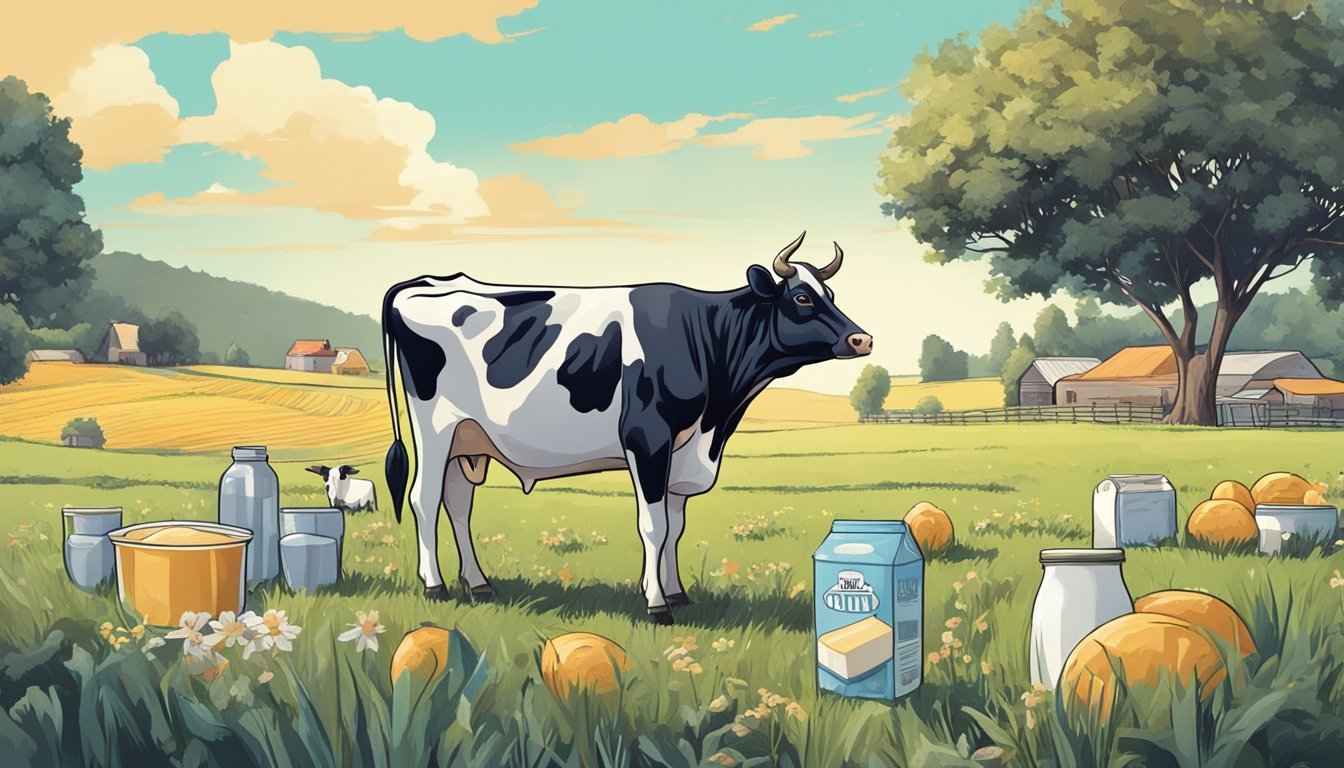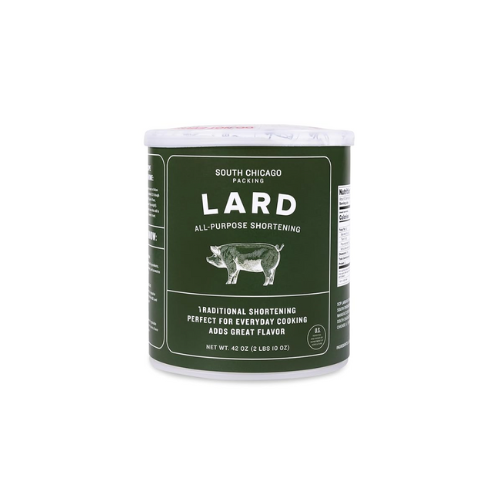How to Approach Dairy Intolerance on the Carnivore Diet
Navigating Nutritional Needs
The carnivore diet, characterized by its strict adherence to animal products and the elimination or substantial reduction of carbohydrates, poses a unique challenge for individuals with dairy intolerance. Dairy products, while derived from animals, are often excluded due to their lactose content—a sugar that can disrupt the low-carb ethos of the carnivore lifestyle. As lactose tolerance can vary widely among individuals, some may be able to include dairy foods like cheese and yogurt, which have lower levels of lactose compared to milk, into their diet without adverse effects.
In navigating dairy intolerance within the confines of the carnivore diet, it's crucial to understand the nature of one's digestive response to lactose. For those who can tolerate it, dairy can serve as an excellent source of protein and fats. Certain types of dairy, such as butter and heavy cream, are almost entirely devoid of lactose and can often be included in the carnivore diet. Conversely, individuals who experience discomfort or undesired symptoms from lactose consumption must seek out alternative sources of fat and protein to maintain dietary adherence.
The approach to dairy on the carnivore diet does not follow a one-size-fits-all template and must be tailored to the individual's digestive capabilities and health goals. Thus, while dairy products offer nutritional benefits, they must be carefully considered or replaced with other nutrient-dense animal products for those with intolerance issues. This balance aims to uphold the principles of the carnivore diet while ensuring adequate nutrition and digestive comfort.
Understanding Dairy Intolerance
Dairy intolerance encompasses difficulties in digesting lactose or reacting adversely to milk proteins such as casein and whey. It can manifest through various health problems and requires careful dietary management.
Lactose Intolerance Basics
Lactose intolerance is a condition in which the body lacks enough lactase, the enzyme necessary to break down lactose, found in milk and dairy products. People with lactose intolerance may experience digestive issues like bloating, gas, and diarrhea when consuming dairy. This condition ranges from mild to severe, and individuals may tolerate varying amounts of lactose.
Prevalence: It affects a significant portion of the adult population.
Symptoms: Bloating, diarrhea, gas, and abdominal pain.
Casein and Whey Sensitivities
Besides lactose, dairy contains two main types of proteins: casein and whey. Some individuals have sensitivities or allergies to these proteins, which can cause immune responses such as skin rashes, hives, and respiratory issues.
Casein: A slow-digesting protein that can lead to inflammatory responses.
Whey: A fast-digesting protein that can also trigger allergic reactions.
Health Issues Related to Dairy
Consumption of dairy by those with an intolerance can lead to several health problems. Persistent discomfort and symptoms can disrupt daily life and may contribute to nutritional deficiencies if dairy is not properly replaced with other sources of calcium and vitamins.
Short-term issues: Immediate digestive and immune responses.
Long-term concerns: Potential nutritional shortfalls due to avoidance of dairy products.
The Carnivore Diet Explained
In the landscape of dietary regimens, the carnivore diet distinguishes itself by exclusively embracing animal-based foods, which proponents argue can offer health benefits if managed properly, while its critics point to inherent risks.
Defining the Carnivore Diet
The carnivore diet is a regimen that involves consuming only meat and animal products. It is characterized by a high intake of protein and fat, while eliminating carbohydrates by excluding all plant-derived foods. This diet typically includes:
Beef
Pork
Chicken
Fish
Eggs
Low-lactose dairy products (in some variations)
The premise centers on the idea that early humans thrived on a meat-heavy diet.
Health Benefits of a Meat-Only Diet
Individuals who follow the carnivore diet may experience:
Simplified diet planning, due to the limited range of food choices.
Increased intake of certain nutrients that are abundant in animal products, such as B12 and other B vitamins, vitamins A and D, iron, zinc, and selenium.
Anecdotal reports suggest improvements in weight management and mental clarity.
It should be noted that these benefits are subject to individual variation and more research is warranted for definitive claims.
Potential Risks and Side Effects
The carnivore diet is not without its concerns, as it excludes certain food groups that offer essential nutrients. Some potential risks and side effects include:
Nutrient deficiencies, particularly of nutrients predominantly found in plant foods, such as fiber and certain vitamins.
Increased risk of heart disease due to high saturated fat and cholesterol intake.
Possible negative impacts on kidney function from a high protein consumption.
Medical professionals usually recommend a balanced diet that includes a variety of food types to minimize these risks.
Nutritional Considerations
When approaching dairy intolerance on the carnivore diet, one needs to ensure that the diet provides all the essential nutrients. It involves paying careful attention to the vitamins and minerals absorbed from animal sources, maintaining a balance between fats and proteins, and for some, achieving the state of ketosis for energy efficiency.
Vitamins and Minerals in Animal Products
Animal products are rich in several vitamins and minerals that are crucial for health, including vitamin B12, vitamin D, iron, and zinc. Liver and other organ meats, for example, contain high levels of vitamin A and B vitamins, critical for energy metabolism and vision. Seafood provides iodine and fatty fish like salmon offer vitamin D and omega-3 fatty acids. It is important to eat a variety of animal foods to cover the spectrum of nutrients.
Key Vitamins and Minerals from Animal Products:
Vitamins: A, B12, D, E, K2
Minerals: Iron, Zinc, Selenium, Iodine, Calcium (in dairy)
Balancing Fats and Proteins
A person on a carnivore diet should balance their intake of fats and proteins. Fats from animals are a mix of saturated and monounsaturated fats with small amounts of polyunsaturated fats. Choosing a variety of fat sources is important to obtain a balanced intake of fatty acids. Saturated fat sources include red meat and butter, while eggs and fish are good sources of monounsaturated and polyunsaturated fats. Protein requirements can be met through lean meats, fish, and eggs.
Fat and Protein Sources:
Saturated Fats: Red meat, butter, cheese (if tolerated)
Monounsaturated Fats: Eggs, fish
Proteins: Beef, poultry, fish, seafood, eggs
Achieving Ketosis on Carnivore
Ketosis is a metabolic state in which the body uses fat for fuel instead of carbohydrates. On the carnivore diet, achieving ketosis can occur since one is eliminating carbohydrates entirely. The body transitions to breaking down fats into ketones, providing a steady energy source. One needs to ensure sufficient fat intake for ketosis. This may involve selecting fattier cuts of meat or adding additional sources of fat, such as bone marrow or fatty fish.
Factors Influencing Ketosis:
Limited Carbohydrates: No dietary carbs from plants to prompt ketosis
High Fat Intake: Preference for fattier cuts or additional fat sources
Moderate Protein: Too much protein can interfere with ketosis; balance is key
By focusing on these nutritional aspects, individuals with dairy intolerance can adhere to a carnivore diet that provides the necessary nutrients for optimal health while potentially benefiting from the ketosis state.
Dairy Alternatives on Carnivore Diet
In adapting to a dairy-free carnivore diet, it's important to identify suitable replacements for dairy products that provide necessary fats, proteins, and minerals. This section explores reliable alternatives that align with the carnivore lifestyle.
Identifying Dairy-Free Fats and Oils
For the carnivore dieter avoiding dairy, fats and oils are pivotal for maintaining caloric intake and satiety. One can opt for animal fats such as tallow, lard, and duck (What wine goes well with duck?) fat, which are excellent for cooking and rich in nutrients. These fats can be sourced from high-quality, pasture-raised animals to ensure they are free from additives and align with the carnivore diet principles.
Tallow: Rendered beef or mutton fat, perfect for high-heat cooking.
Lard: Fat from pigs, suitable for baking and frying.
Duck fat: A flavorful option for roasting and sautéing.
Enjoy the convenience of doorstep delivery when you buy tallow or lard online!
Using Bone Broth and Organ Meat
Bone broth is a nutrient-dense liquid that can be a dairy substitute for those requiring high protein intake on a carnivore diet. It's made by simmering bones, which releases collagen, minerals, and amino acids. Moreover, organ meats like liver and kidney are packed with nutrients and can serve as a cornerstone for those seeking dairy-free options.
Bone Broth: Can be made from chicken, beef, or fish bones and consumed daily.
Liver: High in vitamin A, iron, and essential B vitamins.
Kidney: Provides selenium, iron, and B vitamins.
Non-Dairy Sources of Calcium
While dairy is known for its calcium content, there are non-dairy options for those on a carnivore diet to consider:
Fish with Edible Bones: Sardines and canned salmon offer calcium and omega-3 fatty acids.
Bone Meal Powder: Ground animal bones that can be included in meals as a supplement.
Eggshells: Washed, dried, and ground into a fine powder, eggshells can be a calcium supplement.
Each of these provides calcium in a bioavailable form that supports bone health and physiological functions.
Meal Planning and Preparation
When dealing with dairy intolerance on a carnivore diet, careful meal planning and preparation become essential. One must focus on a variety of animal-based foods that provide ample nutrition without including dairy products.
Creating a Dairy-Free Carnivore Diet Plan
A dairy-free carnivore diet plan can be robust and nutritionally complete, focusing on:
Beef: A staple of the carnivore diet, rich in protein and nutrients.
Pork: Offers variety and can be prepared in numerous ways.
Lamb: A great source of omega-3 fatty acids and vitamin B12.
Chicken: Versatile and easily digestible protein.
Fish and Seafood: High in omega-3 fatty acids and essential for variety.
Eggs: Provide high-quality protein and an array of vitamins and minerals.
A sample one-week meal plan could include:
Monday
Breakfast: Boiled eggs
Lunch (What wine goes well with lunch?): Grilled beef
Dinner (What wine goes well with dinner?): Roasted chicken
Tuesday
Breakfast: Omelet (eggs)
Lunch: Pork chops (What wine goes well with pork chops?)
Dinner: Seared salmon
Wednesday
Breakfast: Poached eggs
Lunch: Beef steak
Dinner: Grilled shrimp
Thursday
Breakfast: Fried eggs
Lunch: Lamb ribs
Dinner: Lobster tail
Friday
Breakfast: Scrambled eggs
Lunch: Beef brisket
Dinner: Baked haddock
Saturday
Breakfast: Egg muffins
Lunch: Pulled pork
Dinner: Steamed clams (What wine goes well with clams?)
Sunday
Breakfast: Omelet (eggs)
Lunch: Lamb burgers
Dinner: Grilled trout
Creating diverse meal plans that cycle through various meats ensures one receives a range of nutrients and prevents mealtime monotony.
Cooking Meat Without Dairy Products
Cooking without dairy requires leveraging other methods to achieve desirable flavors and textures. Here are some cooking tips:
Roasting and Grilling: These methods enhance the meat's natural flavors without the need for dairy.
Herbs and Spices: While pure carnivore diet adherents may stick to salt only, others might include herbs and spices to impart different flavors.
Always ensure meats are cooked to safe internal temperatures, as this enhances both food safety and taste. Using appropriate cooking techniques can easily make up for the absence of dairy, ensuring delicious meals that comply with dietary requirements.
Managing Weight and Health
When individuals on the carnivore diet experience dairy intolerance, they often scrutinize their weight and health as they adjust their diet. Key focuses include the diet's impact on weight loss, health markers, and blood sugar levels.
Weight Loss and Carnivore Diet
The carnivore diet is known for its potential to aid in weight loss by primarily providing high satiety foods that are low in carbohydrates. Individuals often report decreased appetite and spontaneous weight loss. However, the presence of dairy products, which may be high in calories, can influence an individual's ability to maintain a caloric deficit. Therefore, it's crucial for individuals to be mindful of dairy's impact on their daily caloric intake.
Monitoring Health Markers
Health profiles can vary widely among those on the carnivore diet. Monitoring key health markers, including cholesterol levels and blood pressure, is recommended. This is especially important for those with dairy intolerance, as removing dairy can alter dietary fat composition and potentially affect these parameters. Frequent check-ups with a healthcare provider and blood work can help to ensure the carnivore diet, sans dairy, supports one's health goals.
Blood Sugar and Carnivore Diet
Blood sugar regulation is often a cited benefit of the carnivore diet due to its low carbohydrate content. Dairy can be a source of lactose, a sugar, which may lead to blood sugar fluctuations in some individuals. Therefore, for those with dairy intolerance or sensitivity, omitting dairy may contribute to more stable blood sugar levels, which is a favorable aspect for overall health, particularly for individuals with insulin resistance or diabetes.
Addressing Common Concerns
When one adopts the carnivore diet, especially with dairy intolerance, they encounter unique challenges. This section explores the social implications and mental hitches, such as cravings, which are inherent to this restrictive dietary path.
Dietary Restrictions and Social Impact
The carnivore diet can be socially isolating due to its restrictive nature. Individuals often find themselves in social settings where plant-based foods and dairy-laden products are the norm, leading to potentially uncomfortable situations.
Social gatherings: They may need to explain their dietary preferences while declining certain foods, which could be misinterpreted as rude or unappreciative.
Eating out: Restaurant options may be limited, as many dishes include non-animal products or dairy.
In order to mitigate the social impact of this diet:
Communication: They should articulate their dietary restrictions in advance.
Planning: Bringing their own food or eating beforehand can prevent uncomfortable social situations.
Dealing with Food Cravings
Cravings can be powerful and persistent, often influenced by nutritional deficiencies, habit, or mood. Individuals with dairy intolerance on the carnivore diet face the challenge of resisting dairy, which could be a significant source of satisfaction before.
Addressing Nutritional Gaps: Ensuring they consume all necessary nutrients from animal sources may help reduce cravings.
Finding Alternates: Substituting dairy with dairy-free alternatives that comply with the carnivore diet can also provide a solution.
For example, someone craving cheese might opt for:
Thicker cuts of meat: Which provide a satisfying, fatty texture.
Egg yolks: They can offer a creamy consistency akin to cheese.
By addressing these concerns head-on, individuals can successfully maintain their dairy-free carnivore diet without succumbing to cravings or negative social experiences.
Professional Guidance and Support
When managing dairy intolerance within the framework of the carnivore diet, professional guidance is instrumental in ensuring nutritional needs are met while avoiding potential adverse effects.
Consulting Healthcare Providers
Individuals considering the carnivore diet, especially those with dairy intolerance, should first consult healthcare providers. Healthcare providers can perform necessary evaluations and tests to determine the severity of the dairy intolerance. By understanding the individual's medical history and current health status, they can offer tailored advice and monitor any changes to health once the diet is underway.
Role of Dietitians in Diet Planning
Dietitians specialize in creating personalized eating plans that align with individuals' health goals and dietary restrictions. For someone with dairy intolerance on a carnivore diet, a dietitian can suggest suitable dairy substitutes or eliminate it entirely while ensuring nutritional balance. They play a critical role in:
Identifying nutrient-rich animal foods that complement the absence of dairy.
Recommending tests to assess for any deficiencies that may arise due to dietary changes.
By leveraging the expertise of healthcare providers and dietitians, individuals can navigate dairy intolerance within a carnivore dietary pattern with confidence, safeguarding their health and well-being.








